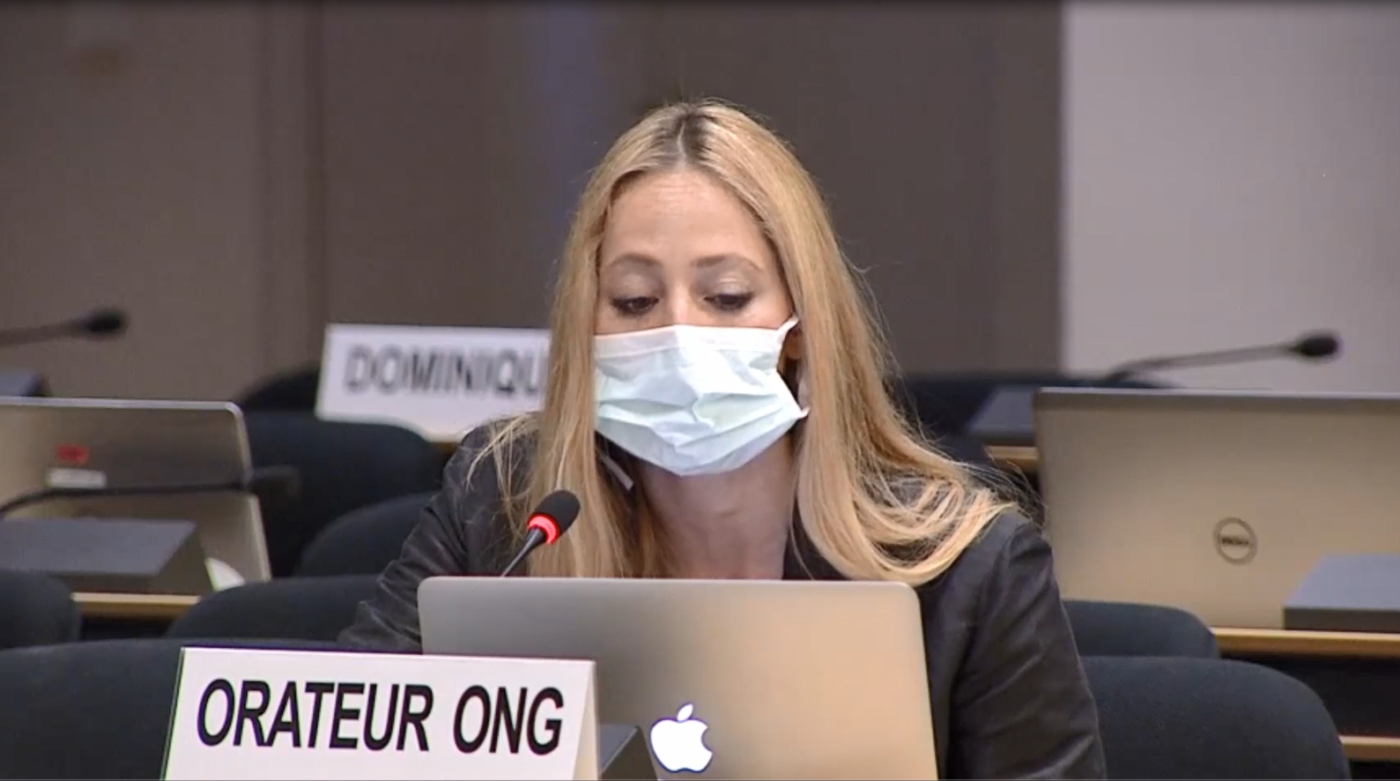On 17 July 2020, ADHRB has delivered an oral intervention at the United Nation Human Rights Council session 44 during Kuwait UPR.
Madam President,
We take this opportunity to raise our serious concern over Kuwait’s human rights violations, particularly committed against the Bidoon stateless minority. Being deemed illegal residents, the Bidoon face severe restrictions of their basic human rights and are denied access to education, healthcare, and employment. Furthermore, the Kuwaiti government continue to target the Bidoon through mass arrests, detention, and other extra-legal attempts to curtail public and civil society efforts advocating for the rights of the minority.
Recently, Kuwaiti authorities have arbitrarily arrested more than a dozen peaceful protesters, demanding equal rights for the Kuwait’s stateless population. Among those, prominent human rights defender Abdulhakim al-Fadhli has been heavily targeted and arrested over five times for his activism. The series of arrests took place in July 2019 following peaceful demonstrations held in response to Ayed Hamad Moudath’s death, a young Bidoon boy who committed suicide due to his frustration over being denied identification papers allowing him to study, work, and obtain access to public services.
The Bidoon population continue to be subjected to torture and abuse at the hands of Kuwaiti police and security forces, particularly during attempts to exercise their rights to free expression and assembly. With this regard, the Bidoon report the Kuwaiti government’s routine prohibition of their gathering in public space under Article 12 of the 1979 Public Gatherings Law. Also, Bidoon and other stateless or non-citizens persons in Kuwait claim inhibited freedom of movement.
Madame President, these discriminatory and stigmatizing practices run contrary to the State’s expressed support of the related recommendations during the 2nd UPR cycle. Kuwait has yet to take substantive action to promote and protect human rights, especially those of its marginalized stateless population.
Thank you, Madame President.





